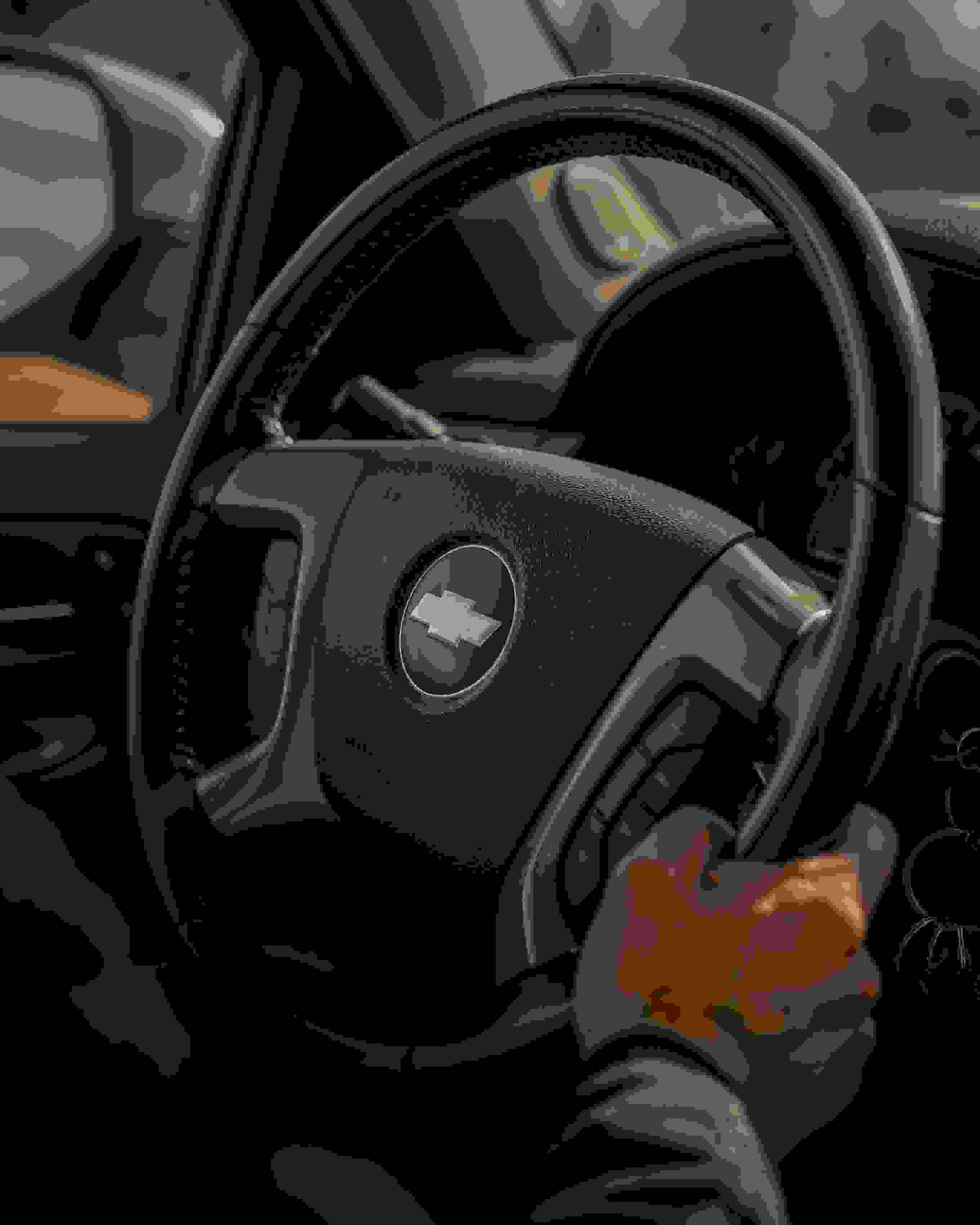The traction control (TC) system in a Chevy Cruze helps keep your vehicle stable on rough roads. Whenever you lose traction, the TC light will illuminate to indicate your system is working as intended—then shut off once traction is restored. But if the TC light stays on continuously, it could be a sign of a faulty sensor, low battery, or other vehicle malfunction.
Any time a light illuminates on our dashboards, it’s easy to fall into a panic—but in the case of your traction control light
, it could be a sign that everything in your vehicle is functioning the way it’s supposed to. If you’re not sure whether or not you should be concerned about the TC light in your Chevy Cruze
, read on to learn what’s normal—and what’s actually cause for concern.  4.717k Ratings
4.717k Ratings5M+Drivers Joined
7M+Cars Garaged
Why your Chevy Cruze traction control light turns on
Every Chevy Cruze is equipped with a traction control system that helps keep your vehicle stable on slippery roads. In rainy, snowy, or icy conditions, your wheels may have a harder time gripping the roadway—but that’s where your traction control system comes in.
Basically, the way it works is that your traction control system compensates for temporary losses of traction by automatically pumping the brakes to whatever wheels have lost their grip. Whenever this happens, the traction control (TC) light will illuminate on your instrument panel—then automatically turn off once traction has been restored.
If you notice that the TC light in your Chevy Cruze turns on and then back off after a brief period of time, don’t panic—this means your TC system is functioning the way it’s supposed to. If, however, the TC light turns on and stays on, you could be dealing with a different type of issue—like a faulty sensor or low car battery. Below, we’ll take a closer look at the most common reasons your Chevy’s TC light turns on.
Temporary loss of traction
The most common reason your TC light turns on is that you’ve lost traction. Heavy rain, snow
, mud, and ice can all cause your wheels to spin and lose their grip, and you may notice the TC light turning on and off as that happens. It’s normal for the TC light to turn on and off in slippery conditions, but if the light stays on or is accompanied by other warning lights, you may have a problem. Bring the vehicle to a mechanic for an inspection
if this happens. Faulty wheel speed sensors
If your TC light turns on and stays on, it’s an indicator that something is probably wrong. The good news is, most of the time the problem is nothing more than a failing wheel speed sensor, which is a relatively minor issue in the grand scheme of car repairs.
Because your traction control system’s sensors are mounted on your Chevy’s wheels, they’re subject to a lot of wear and tear that can result in worn-down sensors over time. A symptom of worn-out sensors is a TC light that won’t turn off—so if you notice that little light staying illuminated on your dashboard, you should bring your vehicle to a repair shop to have the sensors inspected.
You can also use an OBD-II scan tool to check for trouble codes
associated with these sensors. Anti-lock braking system (ABS) malfunction
Another common reason the TC light may turn on in your Chevy Cruze is that there’s a problem with your anti-lock brake system
. But what does your traction control system have to do with your anti-lock brakes? A lot. In fact, your traction control system and ABS share a control module, along with an internal self-diagnostics system. That means that problems with one system tend to activate warning lights for both. So if you’re low on brake fluid or there’s a faulty sensor in your brake pedal, your TC light may illuminate alongside the ABS light.
If that happens, it’s best to bring your Chevy Cruze to a repair shop to have the stability control system serviced as soon as possible.
Low car battery
An illuminated traction control light in your Chevy Cruze could also mean the car’s battery is dying. A tell-tale sign of a battery that’s running out of juice is multiple warning lights appearing on your dashboard—often seemingly out of nowhere. In some cases, it can even result in malfunctions to your traction control system, anti-lock braking system, and other important vehicle functions.
Remember that the average battery life for a Chevy Cruze is just three to five years—so if your car battery is approaching that age, it could be time to replace it.
Can you drive with the traction control light on?
You can drive your Chevy Cruze with the traction control light on—and, in fact, you’re often meant to. When the TC light is functioning as intended, it will turn on and off while you drive in inclement weather.
On the other hand, if the TC light stays illuminated, you’ll need to proceed with caution. A consistently illuminated TC light could mean trouble with major vehicle systems, including your anti-lock braking system or car battery—and if that’s the case, you’ll want to have your Chevy checked out by a professional as soon as possible.
“Jerry
was quick, simple, and saved me a headache searching for the best policy on my brand-new car. I definitely like this service!” —Rich N.
 4.717k Ratings
4.717k Ratings5M+Drivers Joined
7M+Cars Garaged

